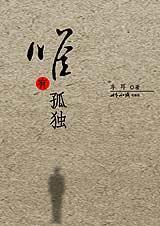百年孤独(英文版)-第35部分
按键盘上方向键 ← 或 → 可快速上下翻页,按键盘上的 Enter 键可回到本书目录页,按键盘上方向键 ↑ 可回到本页顶部!
————未阅读完?加入书签已便下次继续阅读!
“Colonel;?he said; “please do us the favor of not being the first to sign。?
Colonel Aureliano Buendía acceded。 When the documents went all around the table; in the midst of a silence that was so pure that one could have deciphered the signatures from the scratching of the pen on the paper; the first line was still blank。 Colonel Aureliano Buendía prepared to fill it。
“Colonel;?another of his officers said; “there’s still time for everything to e out right。?
Without changing his expression; Colonel Aureliano Buendía signed the first copy。 He had not finished signing the last one when a rebel colonel appeared in the doorway leading a mule carrying two chests。 In spite of his entire youth he had a dry look and a patient expression。 He was the treasurer of the revolution in the Macondo region。 He had made a difficult journey of six days; pulling along the mule; who was dying of hunger; in order to arrive at the armistice on time。 With an exasperating parsimony he took down the chests; opened them; and placed on the table; one by one; seventy…two gold bricks; Everyone had forgotten about the existence of that fortune。 In the disorder of the past year; when the central mand fell apart and the revolution degenerated into a bloody rivalry of leaders; it was impossible to determine any responsibility。 The gold of the revolution; melted into blocks that were then covered with baked clay; was beyond all control。 Colonel Aureliano Buendía had the seventy…two gold bricks included in the inventory of surrender and closed the ceremony without allowing any speeches。 The filthy adolescent stood opposite him; looking into his eyes with his own calm; syrup…colored eyes。
“Something else??Colonel Aureliano Buendía asked him。
The young colonel tightened his mouth。
“The receipt;?he said。
Colonel Aureliano Buendía wrote it out in his own hand。 Then he had a glass of lemonade and a piece of biscuit that the novices were passing around and retired to a field tent which had been prepared for him in case he wished to rest。 There he took off his shirt; sat on the edge of the cot; and at three…fifteen in the afternoon took his pistol and shot himself in the iodine circle that his personal physician had painted on his chest。 At that moment in Macondo ?rsula took the cover off the pot of milk on the stove; wondering why it was taking so long to boil; and found it full of worms。
“They’ve killed Aureliano;?she exclaimed。
She looked toward the courtyard; obeying a habit of her solitude; and then she saw Jos?Arcadio Buendía; soaking wet and sad in the rain and much older than when he had died。 “They shot him in the back;??rsula said more precisely; “and no one was charitable enough to close his eyes。?At dusk through her tears she saw the swift and luminous disks that crossed the sky like an exhalation and she thought that it was a signal of death。 She was still under the chestnut tree; sobbing at her husband’s knees; when they brought in Colonel Aureliano Buendía; wrapped in a blanket that was stiff with dry blood and with his eyes open in rage。
He was out of danger。 The bullet had followed such a neat path that the doctor was able to put a cord soaked in iodine in through the chest and withdraw it from the back。 “That was my masterpiece;?he said with satisfaction。 “It was the only point where a bullet could pass through without harming any vital organ。?Colonel Aureliano Buendía saw himself surrounded by charitable novices who intoned desperate psalms for the repose of his soul and then he was sorry that he had not shot himself in the roof of the mouth as he had considered doing if only to mock the prediction of Pilar Ternera。
“If I still had the authority;?he told the doctor; “I’d have you shot out of hand。 Not for having saved my life but for having made a fool of me。?
The failure of his death brought back his lost prestige in a few hours。 The same people who invented the story that he had sold the war for a room with walls made of gold bricks defined the attempt at suicide as an act of honor and proclaimed him a martyr。 Then; when he rejected the Order of Merit awarded him by the president of the republic; even his most bitter enemies filed through the room asking him to withdraw recognition of the armistice and to start a new war。 The house was filled with gifts meant as amends。 Impressed finally by the massive support of his former rades in arms; Colonel Aureliano Buendía did not put aside the possibility of pleasing them。 On the contrary; at a certain moment he seemed so enthusiastic with the idea of a new war that Colonel Gerineldo Márquez thought that he was only waiting for a pretext to proclaim it。 The pretext was offered; in fact; when the president of the republic refused to award any military pensions to former batants; Liberal or Conservative; until each case was examined by a special mission and the award approved by the congress。 “That’s an outrage;?thundered Colonel Aureliano Buendía。 “They’ll die of old age waiting for the mail to e。?For the first time he left the rocker that ?rsula had bought for his convalescence; and; walking about the bedroom; he dictated a strong message to the president of the republic。 In that telegram which was never made public; he denounced the first violation of the Treaty of Neerlandia and threatened to proclaim war to the death if the assignment of pensions was not resolved within two weeks。 His attitude was so just that it allowed him to hope even for the support of former Conservative batants。 But the only reply from the government was the reinforcement of the military guard that had been placed at the door of his house with the pretext of protecting him; and the prohibition of all types of visits; Similar methods were adopted all through the country with other leaders who bore watching。 It was an operation that was so timely; drastic; and effective that two months after the armistice; when Colonel Aureliano Buendía had recovered; his most dedicated conspirators were dead or exiled or had been assimilated forever into public administration。
Colonel Aureliano Buendía left his room in December and it was sufficient for him to look at the porch in order not to think about war again。 With a vitality that seemed impossible at her age; ?rsula had rejuvenated the house again。 “Now they’re going to see who I am;?she said when she saw that her son was going to live。 “There won’t be a better; more open house in all the world than this madhouse。?She had it washed and painted; changed the furniture; restored the garden and planted new flowers; and opened doors and windows so that the dazzling light of summer would penetrate even into the bedrooms。 She decreed an end to the numerous superimposed periods of mourning and she herself exchanged her rigorous old gowns for youthful clothing。 The music of the pianola again made the house merry。 When she heard it; Amaranta thought of Pietro Crespi; his evening gardenia; and his smell of lavender; and in the depths of her withered heart a clean rancor flourished; purified by time。 One afternoon when she was trying to put the parlor in order; ?rsula asked for the help of the soldiers who were guarding the house。 The young mander of the guard gave them permission。 Little by little; ?rsula began assigning them new chores。 She invited them to eat; gave them clothing and shoes; and taught them how to read and write。 When the government withdrew the guard; one of them continued living in the house and was in her service for many years。 On New Year’s Day; driven mad by rebuffs from Remedios the Beauty; the young mander of the guard was found dead under her window。
Chapter 10
YEARS LATER on his deathbed Aureliano Segundo would remember the rainy afternoon in June when he went into the bedroom to meet his first son。 Even though the child was languid and weepy; with no mark of a Buendía; he did not have to think twice about naming him。
“We’ll call him Jos?Arcadio;?he said。
Fernanda del Carpio; the beautiful woman he had married the year before; agreed。 ?rsula; on the other hand; could not conceal a vague feeling of doubt。 Throughout the long history of the family the insistent repetition of names had made her draw some conclusions that seemed to be certain。 While the Aurelianos were withdrawn; but with lucid minds; the Jos?Arcadios were impulsive and enterprising; but they were marked with a tragic sign。 The only cases that were impossible to classify were those of Jos?Arcadio Segundo and Aureliano Segundo。 They were so much alike and so mischievous during childhood that not even Santa Sofía de la Piedad could tell them apart。 On the day of their christening Amaranta put bracelets on them with their respective names and dressed them in different colored clothing marked with each one’s initials; but when they began to go to school they decided to exchange clothing and bracelets and call each other by opposite names。 The teacher; Melchor Escalona; used to knowing Jos?Arcadio Segundo by his green shirt; went out of his mind when he discovered that the latter was wearing Aureliano Segundo’s bracelet and that the other one said; nevertheless; that his name was Aureliano Segundo in spite of the fact that he was wearing the white shirt and the bracelet with Jos?Arcadio Segundo’s name。 From then on he was never sure who was who。 Even when they grew up and life made them different。 ?rsula still wondered if they themselves might not have made a mistake in some moment of their intricate game of confusion and had bee changed forever。 Until the beginning of adolescence they were two synchronized machines。 They would wake up at the same time; have the urge to go to the bathroom at the same time; suffer the same upsets in health; and they even dreamed about the same things。 In the house; where it was thought that they coordinated their actions with a simple desire to confuse; no one realized what really was happening until one day when Santa Sofía de la Piedad gave one of them a glass of lemonade and as soon as he tasted it the other one said that it needed sugar。 Santa Sofía de la Piedad; who had indeed forgotten to put sugar in the lemonade; told ?rsula about it。 “That’s what they’re all like;?she said wit





